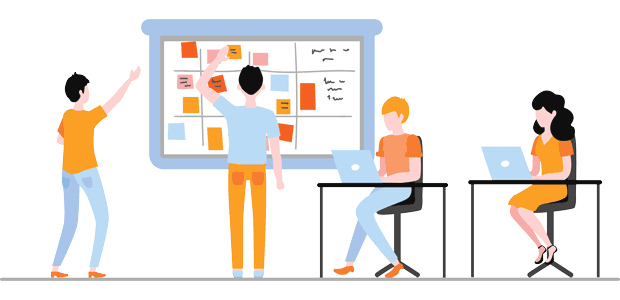
The Best Laid Business Plans
The first lesson to be drawn from 2020, and undoubtedly the biggest lesson, is that the future is unpredictable. All of us in our personal and business lives try to predict the future to some extent, as this is what enables us to lay plans for the future.
But we all know that by the time the future has turned into the present it is never quite what was expected. Each of us as individuals are constantly in that position, but 2020 was one of those, thankfully, extremely rare years where the entire population’s predictions ended up being spectacularly wrong.
Some might argue that we should have seen something like the COVID-19 pandemic coming in 2020, due to the fact that in each of 1720, 1820, and 1920 there has been a major epidemic. In 1720 it was the plague, 1820 saw cholera, and 1920 was easily the worst year with Spanish Flu. Whether this is true or not, there is certainly no surprise that such events are not taken into consideration for economic forecasting on a macro level or for business planning and financial forecasting on an individual business level. We can only ever deal with hard facts and realistic assumptions based on those facts.
Before any business is started the founders should have a very clear idea of what the business product or service is, what its unique selling point is, where it fits into the market, and what the price point is. In addition, it is then necessary to establish how it will be brought to market and developed, and what resources are needed to do that, and at what cost. All of this is part of establishing the minimum viable product and proof of concept. Financial forecasts form an extremely important part of the business plan, along with the assumptions that those forecasts are based upon.
The business plan can be started from a business model canvas and then developed into a full plan. Given that circumstances change and the business itself develops, it is always recommended that the business plan should be a living document and regularly reviewed and updated rather than left on the shelf to gather dust.
The year 2020 has certainly taught us that the best laid plans, and the best laid business plans, are always susceptible to change, and often in the most unexpected ways. But often what sets winners apart from losers is the way that they manage to pick themselves up from any setbacks and move on in life. In essence, learning all the lessons available from the experience and using them to shape their future decisions.
No founder, director, or business owner will finish 2020 with the same mindset to doing business as they had at the beginning of the year. Whether their own individual business has suffered or benefitted by the totally unforeseen events that have occurred this year, all will be much better placed to understand the need to remain flexible and to adapt with changing circumstances.
What is also important though is to make sure that the wrong lessons are not learned, the biggest of which would be that having a business plan and making forecasts is not necessary when they can be so radically altered by outside events. Instead, new business plans and forecasts should now be put together but with the benefit that hindsight always gives us that we might need to adapt it again in the future. Let us all hope that 2020 will remain almost unique in how many lessons have had to be learned so quickly by almost all of us, but let us all pick ourselves up and move on and believe in the old adage that ‘what doesn’t kill you makes you stronger’.

